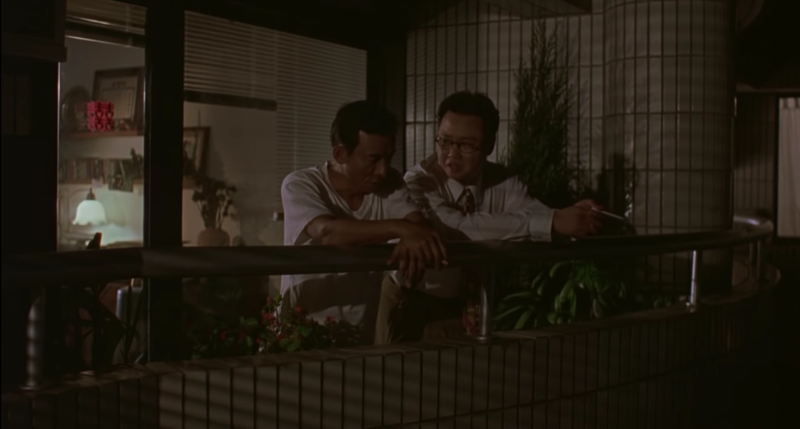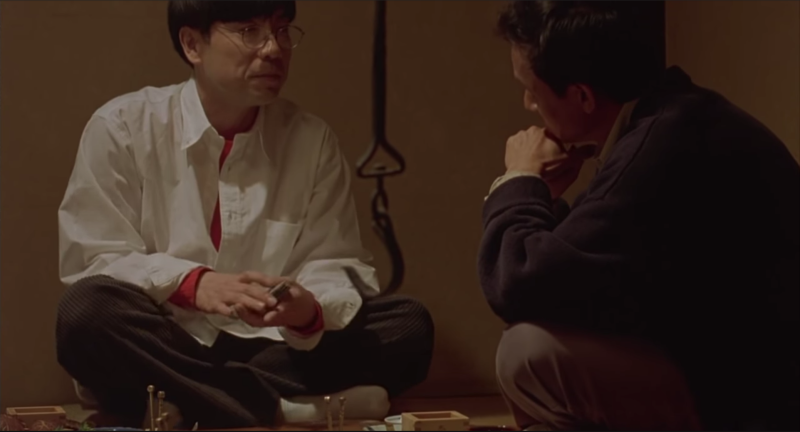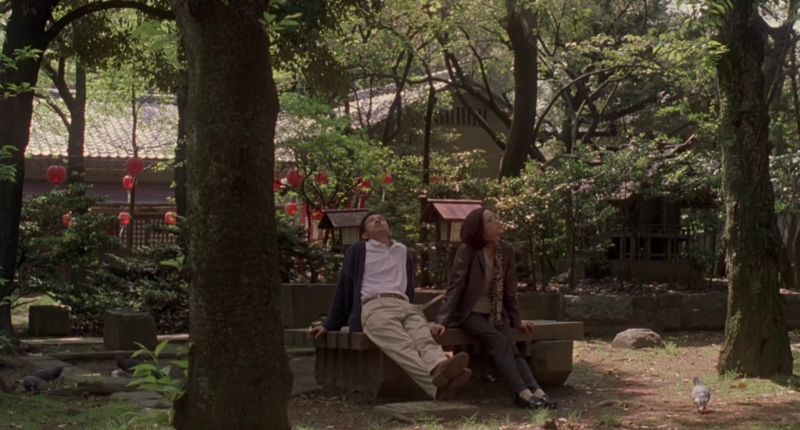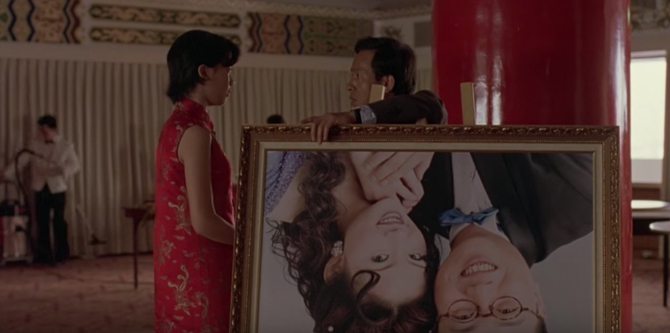Yi Yi , or 一一, means “one by one” in Chinese. In writer/director Edward Yang’s 2000 slice-of-life drama, the story follows the Jiangs and their extended family. After one day, the matriarch of the family had mysteriously fallen unconscious, and the rest of the family suddenly arrives at the crossroads of their lives. Yi Yi doesn’t follow any conventional story rhythm; events simply unfold as they do in real life, one after another, no matter how timely or inconvenient they could be.

Each member of the family is a looking glass peering into different parts of Taiwan’s middle class. As a native Taiwanese, I cannot praise Edward Yang enough for the astuteness of his observations. Although Yi Yi is now eighteen years old, its depiction of people is still astoundingly spot on. The characters in Yi Yi are either someone I had personally known or immediately recognizable from after-dinner gossip. The authenticity was amazing, yes, but it was also discouraging. Are we so incapable of change that we are forever confined to the same struggle? There is always one relative you know who is always in between a bad investment and a loan, a teenager defined by uniform and academic performance in the eyes of other adults, a schoolboy battling the legacy of KMT’s authoritarian rule (disciplinary department, in Taiwanese high schools there are even military officers). But must there be?

The story switches between different points of view, but it was NJ and his two children who got the most screen time. Yi Yi was the debut movie of the two child actors. While both of them weren’t particularly terrible, Ting-Ting (Kelly Lee)’s weakness as an actor was more glaring under the weight of her heavy presence in the story. I had imagined Kelly Lee being a shy, obedient schoolgirl in real life was the reason she got the part, but that does not necessarily mean she was capable of playing as herself on camera. Kelly Lee’s every delivery was strained with effort and that killed any genuineness and spontaneity necessary for some of her lines. The only instance her wooden acting worked in her favor was during her awkward entanglement with her neighbor’s ex-boyfriend.

Of all the PoV characters, the strongest one by far was the salaryman father, NJ (portrayed by Wu Nien-Jen—have you noticed that many of the characters in Yi Yi retained their real names?). The movie didn’t pick up until it shifted its focus from Ting-Ting to NJ. NJ had a stable job in an expanding tech company and a healthy family, yet his existential crisis was the deepest of them all. Though his family life wasn’t exactly unhappy, he just wasn’t close to his wife and children. At work, his peers sought his opinions, but his views were not always respected. His honesty oftentimes became the target of his colleagues’ japes.
NJ was thrown off the rails when he wound up on a business trip with his former lover Sherry to Japan to meet with Mr. Ota (Issey Ogata), a potential business partner. Wu Nien-Jen’s trademark earnestness played off well against Mr. Ota’s optimistic wisdom. For once, he had the opportunity to make something bold and new and be a part of something greater. While he was strolling through the streets of Japan with Shelly, we saw him truly opened up for the first time. In the film, NJ’s character frequently alternates between Mandarin and Taiwanese Hokkien. The two spoken languages’ identities stemmed from the power dynamics between the new immigrants who fled with the Nationalist government and the local Han majority that emigrated to Taiwan during (or before) the Qin dynasty. While Hokkien was considered less refined by some, it was regarded more down to earth by others. Mandarin was the mask of formality NJ wore even when interacting with his family. Only when he was conversing with Shelly was he speaking exclusively in Hokkien in long stretches.
The trip seemed like a success, but alas, nothing ever goes according to plan. Potentials opened up from the past and the future were in a mere instant, no more. Yi Yi often lamented the fragility of idealism, and how ideals and the nuances of life often succumb to lesser desires. Perhaps Edward Yang based NJ’s character partially on himself. In an interview, the director said he was unsatisfied with how film distribution was in a stranglehold of a few, and he would not want to see his film be sent to die. Thus he forewent releasing Yi Yi in Taiwan altogether. Besides a few film festivals, Yi Yi has never been screened to the public in Taiwan until 2017.

One could not thoroughly appreciate the wedding scenes until one had watched the movie in full. The wedding at the beginning of Yi Yi was the perfect microcosm of the film’s outlook on life itself. I have attended quite a few Taiwanese weddings in my life. They are such an odd amalgam of conflicting elements, and somehow the image they formed was not one of discord. Wedding ceremonies in Taiwan are a clash of the east and the west, of the new and the old; couples dressed in suits and white dresses exchange vows and rings in the middle of a dinner venue which signals the start of a traditional Chinese feast consisting of no less than ten courses. The wedding in the movie was also where hopes and dreams meet, along with all the crude and mundane attributes of life. Edward Yang captured every human detail: the miscellaneous preparations, the raucous joy, lowly gossips and toasting culture. Life is where everything intersects.

Yi Yi was sometimes playfully translated into A One and a Two. It’s a play on the Chinese words of “one” and “two”, in which two “一” form a “二”. There’s an old Chinese expression called “塞翁失馬,焉知非福”. In the parable that spawned the saying, a series of events brought merry and misery, yet no one could really judge the situation fortunate or unfortunate until the dust settled. The only thing Yi Yi makes clear was that life has no clear path and holds no clear answers. Sometimes one needs to accept life in its messy entirety just to see a little better.
